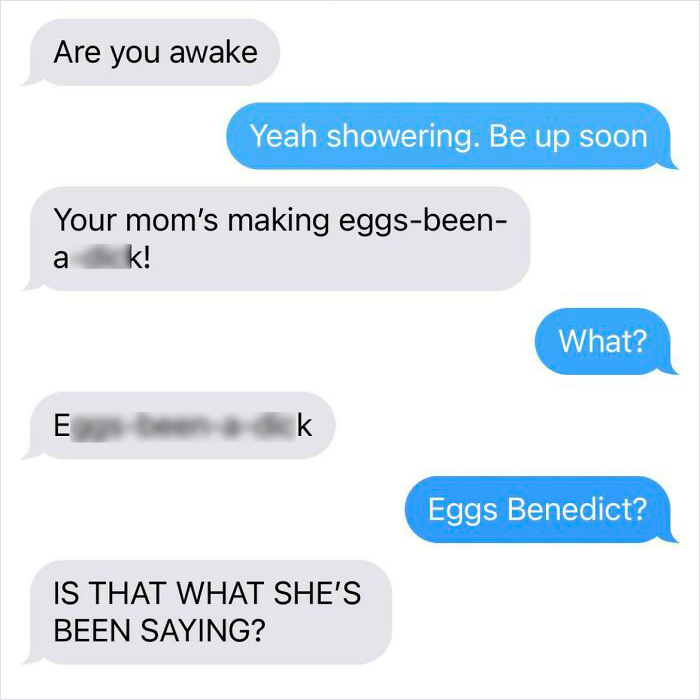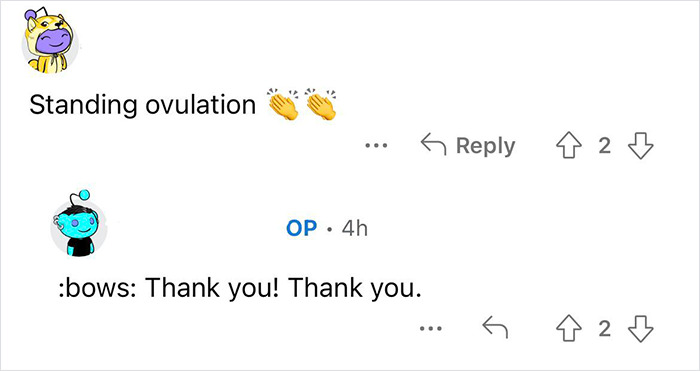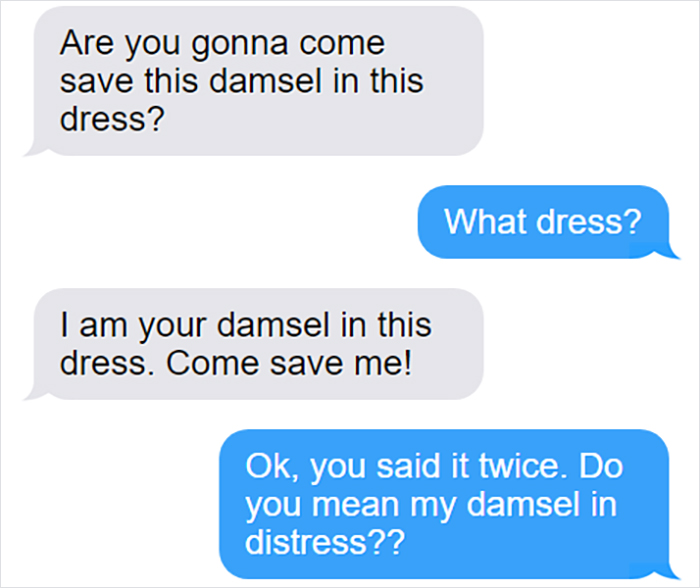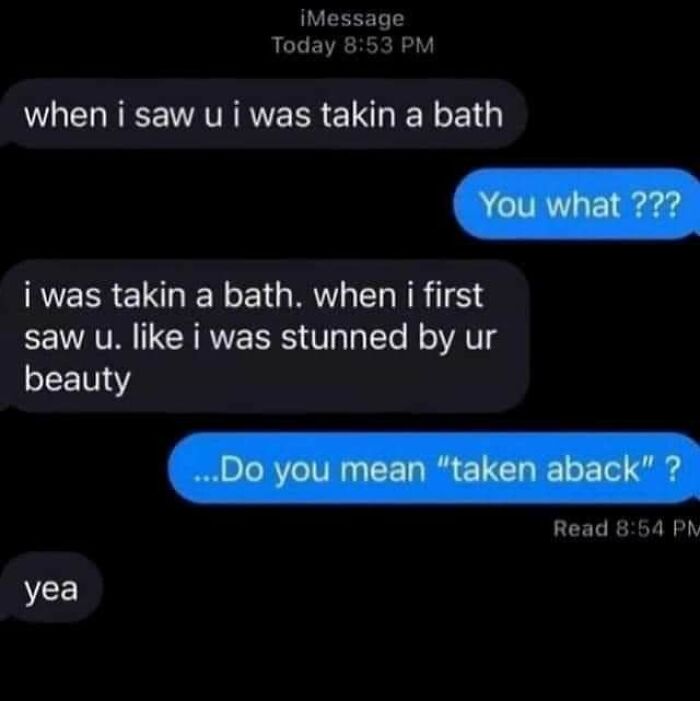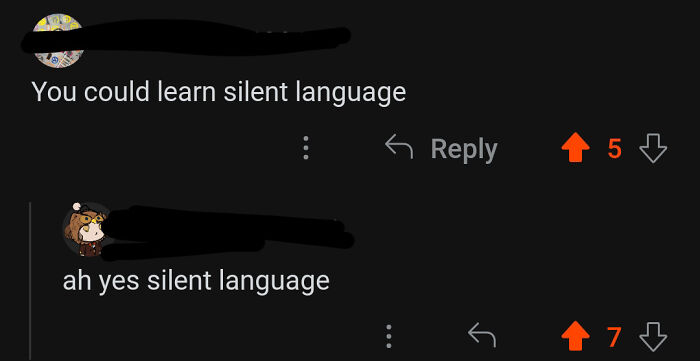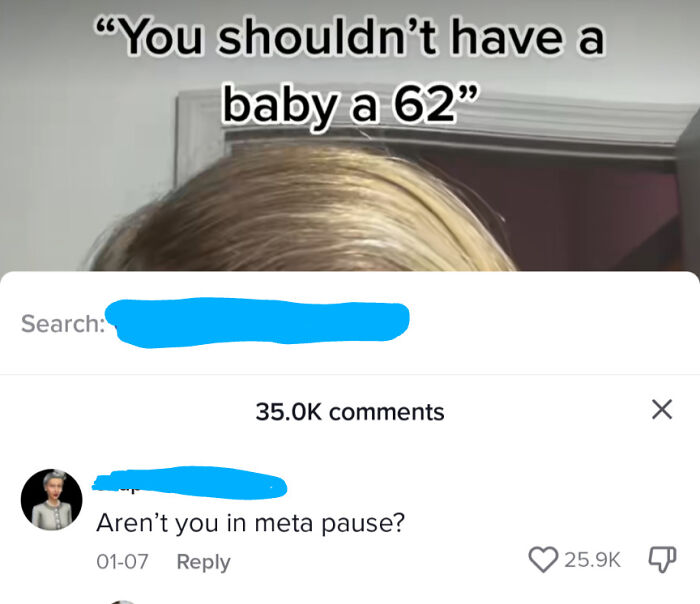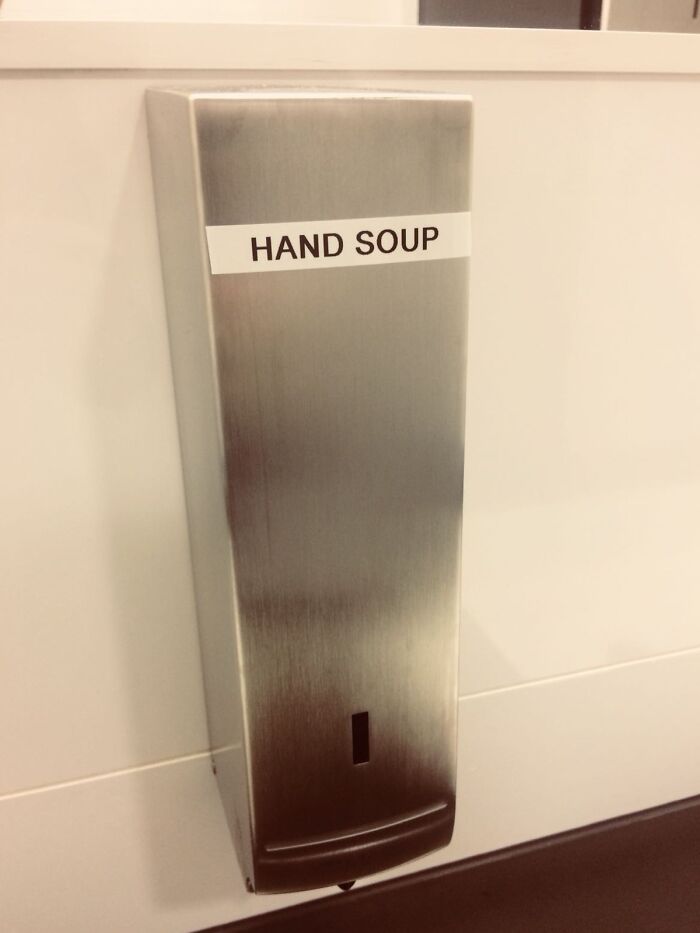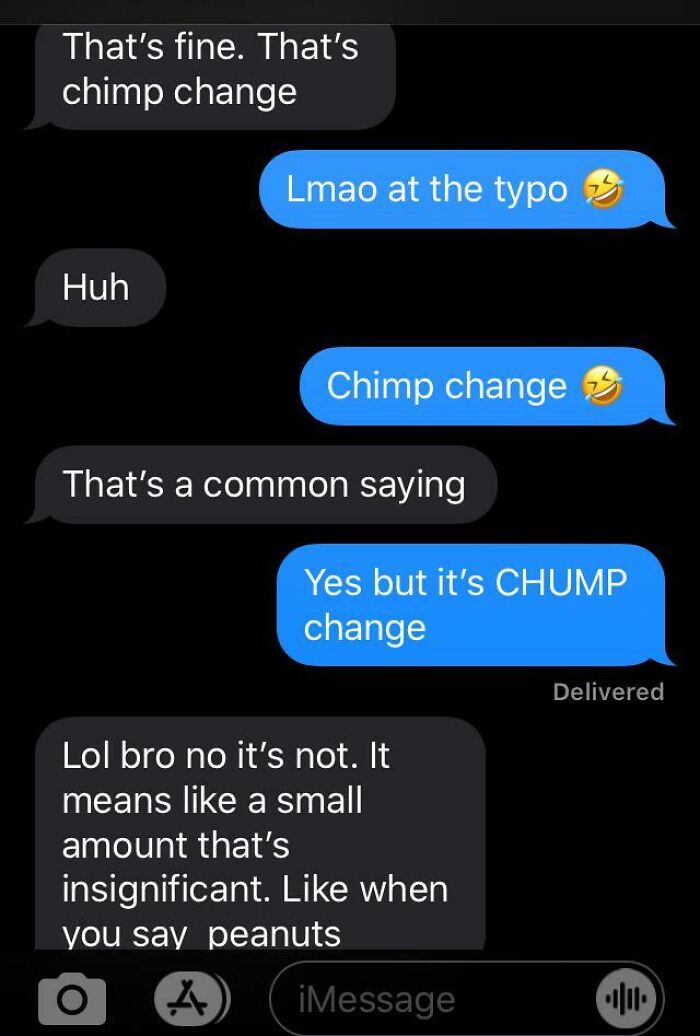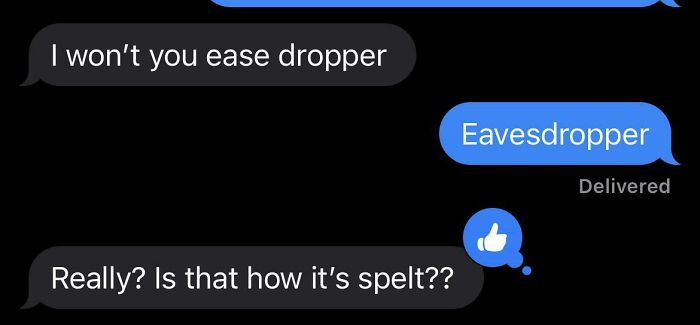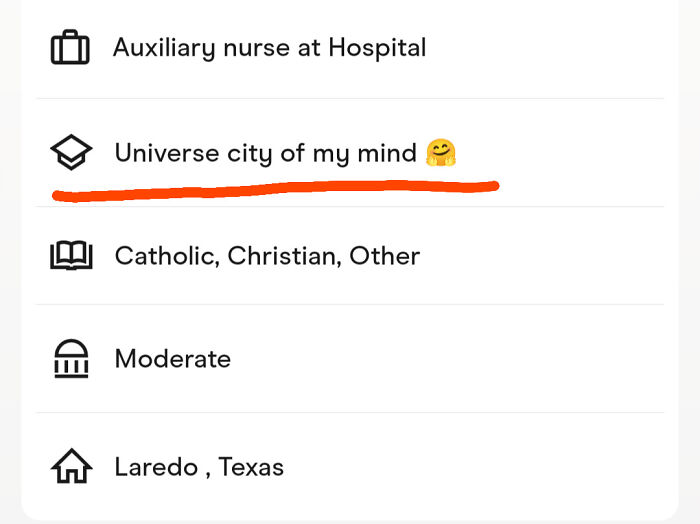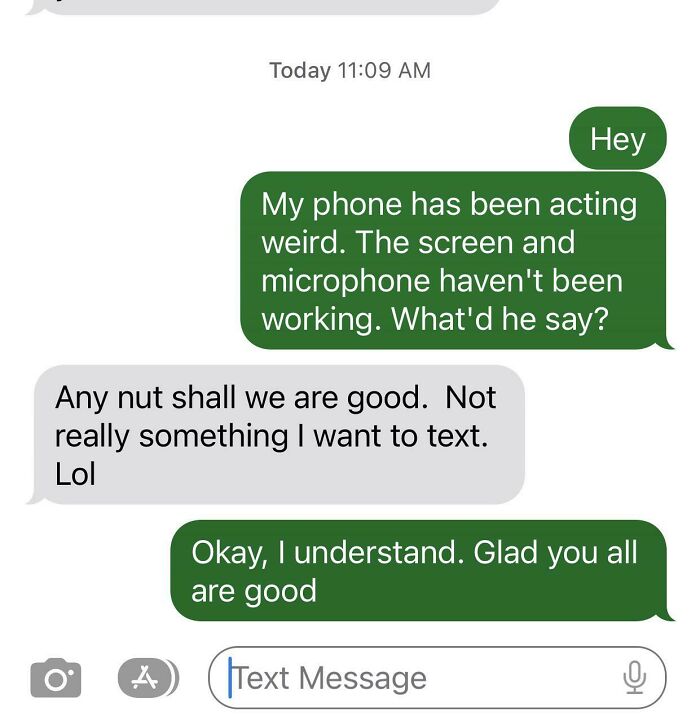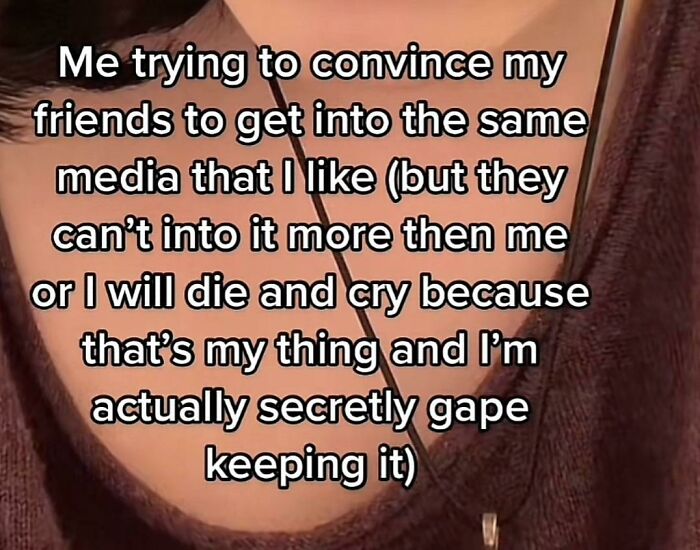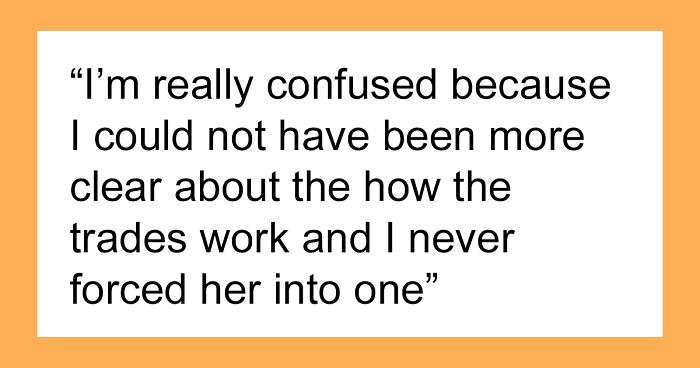
50 Times Confidently Incorrect People Blessed Us With Hilarious Fails With Words (New Pics)
Language is such a complex matter that a lifetime might not be enough to learn all of its ins and outs. And this goes with any of them, which makes English no exception. Despite being the most used one in the world, it often causes difficulties for foreigners and natives alike.
Especially when it comes to set phrases, some of which might sound different from what they actually are. For instance, saving a damsel in this dress, agreeing that looks can be this evening, or seeing a child who is a spit and image of their parent.
Whether it’s lack of familiarity with the language, a typo, or simply uncertainty about what the phrase is exactly, it often leads to some hilarious linguistic misunderstandings. We have browsed the internet to bring to you some of the best examples of such situations that ought to make you giggle. Scroll down for the list and have a good laugh.
In order to get better acquainted with the subtleties of the English language, Bored Panda reached out to Dr. Dorisa Costello, an associate professor at The School of Humanities and the Arts at William Jessup University. You will find our interview with her below.
This post may include affiliate links.
In Some Near
Nowadays, English is the most commonly used language in the world. According to Ethnologue’s 2022 data, there are 373 million native speakers and slightly more than a billion people who use English as a foreign language. (If you’re curious, when it comes to native and non-native speakers combined, it’s followed by Mandarin Chinese, Hindi, and Spanish respectively.)
English is considered the lingua franca that connects people from all over the world. It’s the main language in business, and plays an important role in tourism and many other industries. It is also an essential part of the internet world, as nearly 60% of online content is presented in English.
Catholic Converter
Eggs-Been-A-D**k
English might be the most used language globally, but that doesn’t mean it’s equally easy to learn for everybody. When discussing the hoops learners have to jump through, Dr. Dorisa Costello told Bored Panda: “One difficulty with English is that because it is a mixture of various language groups, and has incorporated cognates from other languages, it is not phonetic. So, for a language learner, pronunciation will be difficult.
“I think our grammatical rules are pretty straightforward, though there are always exceptions to the rules, but actually speaking and knowing how to pronounce words has to be learned through usage. How do you know how to pronounce 'cough,' 'bough,' and 'though'? They are all different, but they look the same. You only know by hearing them pronounced and then memorizing that pronunciation.”
Doggy Dog
In case anyone missed it, I feel the need to call attention to where they said that the "enslaving of people is a totally natural part of human life."
Urethra!
I remember having to cram idioms back in school myself, or trying my best to carve all the verb forms into my brain. And still, even after years of studying, an accidental your instead of you’re slips out every once in a while.
The Oxford International Education Group pointed out that mixing these two homophones is one of the most common mistakes when it comes to English grammar. They fall into the same category of headaches together with the usage of modifiers, apostrophes, and other specifics of this colorful language.
But whether you’re a native or not, making mistakes is inevitable. It was the poet Alexander Pope who said “to err is human” in the early 18th century, and it’s still as accurate now, if not even more so.
Salmon Vanilla
Bob Wire
Standing Ovulation
Nowadays, our language has been warped by the influence of technology and social media. Their rapid development constantly brings new words into our vocabulary. For example, the commonly used selfie, troll, and unfriend all came from the online world.
Moreover, there’s an ever-growing list of acronyms on the internet as well. (Which, in my honest opinion, is getting difficult to keep up with.) In this fast-paced world, they allow us to save a couple seconds when writing, which we often spend scrolling online anyways, LOL.
In addition to the good old laughing out loud, you can often encounter such acronyms as TL;DR (too long; didn’t read), SMH (shaking my head), or G2G (got to go), just to name a few.
Had To Confirm This Is Really What They Mean. Damsel In This Dress
Toe Food
Going Into Cardigan Arrest
But the internet can be a double-edged sword. The same way it encourages us to use slang or forget all about grammar rules, it allows people to get better acquainted with the language and learn it faster. A 2014 survey revealed that 93% of people agree that the internet is useful for learning English.
It also comes in handy when you have no idea what a certain phrase means. A quick online search can help figure out why it’s called a catalytic converter (related to catalyst) rather than a Catholic converter or why taken aback might make more sense than taking a bath when it comes to someone’s indescribable beauty.
Brown Kite Is
Urethral
Before Einstein's theories of warped time-space, ether was the proposed substance that communicated the force of gravity between objects in outer space. Hence, "ethereal" means having to do with celestial objects. Celestial, but mysterious.
Circumcise
Such colorful expressions can benefit English users in multiple ways. “Idiomatic expressions act as a kind of shorthand, where you express a larger idea very compactly,” Dr. Costello pointed out. “While this also leads to using cliches, which I think limit language, they do express ideas more quickly, so they are useful that way.
“Also, because they usually are connected to a particular cultural context, a language learner gets a glimpse into a language's culture, which I think is important to truly mastering a language,” she added.
Ankle Grinder
Blubbery Cheese Cake
Takin A Bath By Her Beauty
Britannica covered the etymology of some popular phrases in English in one of their articles. It revealed that saying to turn a blind eye could be traced back to a man using his blind eye for looking through a telescope, while the popular expression of feeling under the weather arguably relates to sailors hiding under the bow of the ship to hide from bad weather conditions when feeling ill.
Always Make Sure You Use Your Tongue!
Mitch Match Civil Where
Nip It In The Butt
Some more examples, such as letting one’s hair down or giving a cold shoulder were explained by Grammarly. If taken quite literally, these expressions might throw someone off guard. (Especially if it’s a foreign language they’re trying to wrap their head around.)
“Many of our idiomatic expressions have particular cultural context, which may be old or outdated, but explains why the expression makes sense. For a language learner, without the context, these phrases may not make sense, or a speaker may not know when to use it properly,” the expert told Bored Panda.
Both of the aforementioned examples are based on habitual actions in the past, which were exactly what the idioms say. Letting their hair down was something aristocratic women would do when they came home and could finally relax; while a shoulder of mutton, pork, or beef chop was given to a guest signaling it’s time for them to leave.
Silent Language
Genius Aqua
Apparently Fire Exists
Such phrases can be a pain in the neck to learn. Even native speakers themselves are often confused by them, as you have likely noticed by now. But learning all of them is close to impossible, as there are arguably 25,000 idiomatic expressions in the English language.
Ph.D. in English and creative writing Dorisa Costello pointed out that for those who want to learn at least some of them, reading is a great way to do it. “One of the best ways to expand one's vocabulary is by reading. This is true for a native speaker or a language learner. Other media are helpful, too, especially for more natural inflection or colloquialisms.”
A Pitta Me
Too Flamboyant To Swim
Meta Pause
The same way learning the subtleties of English might be frustrating to non-native speakers, other languages present hoops for the native ones to jump through as well. However, Gallup revealed that a quarter of Americans can hold a conversation in a foreign language; most commonly Spanish. According to Babble, it’s the third easiest language for English speakers to learn, preceded only by Norwegian and Swedish.
"Looks Can Be A Little This Evening "
Jena Rated
Air Ducks
I’d recommend someone but he’s kind of a quack. He doesn’t have the proper duck-uments. You should probably wing it 🤷♀️ je ne sais quack!
If you want to continue getting acquainted with the etymology and usage of English sayings, click here to learn the history behind 66 commonly used ones or read about the phrases people are using incorrectly here. And if you think you’ve reached your daily limit with this language, browse 30 of people’s favorite non-English phrases and their literal meanings here.
A Mere Marketplace Mear
Breakfast Nuke
Fridge Raider
Entry Pioneer
But they're wrong! A porn star could be considered an entry pioneer of sorts
Mow-Nourished
My parents would tell me about "starving kids in China" in order to get me to eat as a kid. Were they Mao-nourished? (I'm so sorry...)
Fat Button Girls - Queen
Paper Machete
As he raised his paper blade in a pointless attempt to deflect its metal counterpart, Henry realized too late that the message John had sent him contained a typo.
Delicious Hand Soup
Pheasant
It's true. A queen will never look at a pheasant, unless it's seasoned delicately, slow roasted over a cherry-wood fire, and served with fingerling potatoes.
Cone Sent Lmao
Lonely Tennessee Melons Can’t Elope
Living Life Bi-Curiously
Jack Off All Traits
Like I'm At The Foreskin Of Everybody's Mind
Fire Distinguisher
Fire Distinguisher operating instructions: Beat the fire with this brass thing. If the flames beat down slightly it is a Class A (Solids). If burning liquid splatters on you it is Class B (Liquids) (or possibly Class F). If you miss entirely it is Class C (Gases). If it melts the brass thing it is Class D (Metals). If you get electrocuted it is an Electrical Fire. Once you have distinguished the type of fire, go get the appropriately classed modern fire extinguisher. (though it may now be too late so why not relax with a nice cup of Camel Meal tea.)
I Love All My Metals
I'm pretty sure everyone had veins, not just skinny people who were once over weight. In fact, I'm positive.
Or Best Awful
Garlic Permission
They Can't Handle My Cork Collection
Cadillac Converter!
A Soccer Punch
My mother and sister both say “mute point” instead of “moot point” and “escape goat” instead of “scapegoat”. No amount of gentle corrections have worked XD
Scapegoat originally was an escape goat - it was the one that took one for the team and allowed the rest of the herd to get away. I thought a wolf would have known that ;)
Load More Replies...One of my favorites was from decades ago...an English teacher had a student who kept mixing up "burro" and "burrow." So the teacher wrote this note on the student's paper: "Clearly, you don't know your a*s from a hole in the ground."
I presume some people are using the voice to text function and not checking what's written. Can they really be that dumb? Or are these mocked up for humour? The genuine ones, though, are a sad indictment of what happens when people (especially teachers) get criticised for correcting the errors of others.
I don't get the criticism. If I'm pronouncing or spelling something incorrectly, please tell me. I'd rather be embarrassed once than multiple times.
Load More Replies...My mother and sister both say “mute point” instead of “moot point” and “escape goat” instead of “scapegoat”. No amount of gentle corrections have worked XD
Scapegoat originally was an escape goat - it was the one that took one for the team and allowed the rest of the herd to get away. I thought a wolf would have known that ;)
Load More Replies...One of my favorites was from decades ago...an English teacher had a student who kept mixing up "burro" and "burrow." So the teacher wrote this note on the student's paper: "Clearly, you don't know your a*s from a hole in the ground."
I presume some people are using the voice to text function and not checking what's written. Can they really be that dumb? Or are these mocked up for humour? The genuine ones, though, are a sad indictment of what happens when people (especially teachers) get criticised for correcting the errors of others.
I don't get the criticism. If I'm pronouncing or spelling something incorrectly, please tell me. I'd rather be embarrassed once than multiple times.
Load More Replies...
 Dark Mode
Dark Mode 

 No fees, cancel anytime
No fees, cancel anytime 















